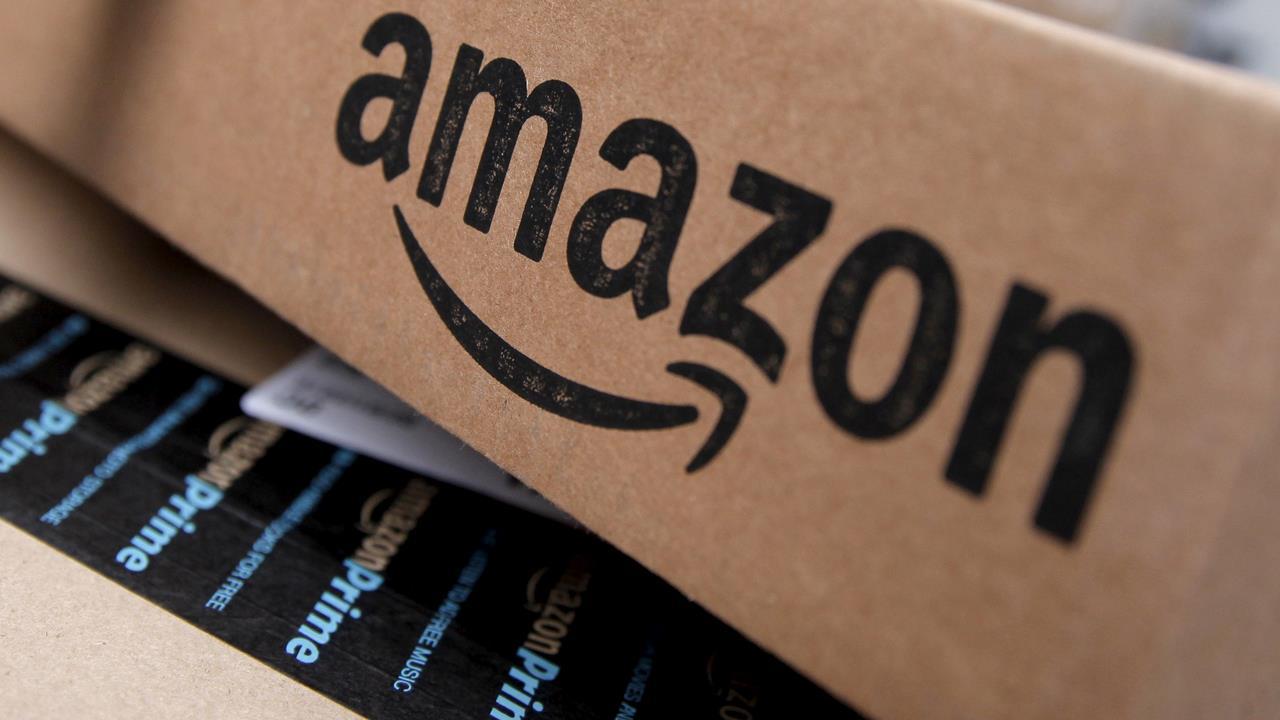Trump vs. Amazon: Here’s what could happen
President Donald Trump took aim at tech giant Amazon on Thursday, following reports that he is seeking to change the company’s tax treatment, which sent shares plummeting.
The White House said on Wednesday that while there are no specific policy proposals on the table right now, the administration is always “looking to create a level playing field for all businesses.”
During his campaign, Trump said Amazon CEO Jeff Bezos would have “such problems” if he were elected into the country’s highest office, and has continued to rail against Bezos and his businesses for a variety of reasons -- including allegedly evading taxes and killing off American jobs.
As the president reportedly considers ways to get Amazon to pay what he thinks is its fair share, here’s a look at what could happen.
Internet sales tax
One of the main suggestions for changing Amazon’s treatment, which would have to be implemented by Congress and not the president himself, is the imposition of an internet sales tax. This would mean that states could collect sales taxes from online buyers, no matter where they reside, at the tax rate stipulated in their specific state.
But even before Congress can act, the Supreme Court might. The Supreme Court said earlier this year it would consider whether states can require an online retailer to collect sales taxes even if the company has no physical presence in the state. If the current law is changed, states could tax online sales from beyond their borders, which would eliminate benefits for consumers.
On Thursday, Trump criticized Amazon for not paying taxes to state and local governments. This sales tax could help remedy that issue.
Still, not all experts think Trump has the right idea on this tax.
“Amazon already collects sales taxes on products it sells, so the issue is just whether they also collect sales taxes on third-party Amazon vendors,” Chris Edwards, director of tax policy studies at Cato and editor of www.DownsizingGovernment.org, told FOX Business. “Imposing taxes on them would add a large compliance burden — especially to small e-tailers — that would harm the economy.”
Antitrust laws
During an interview with Fox News in May, Trump suggested Amazon had “a huge antitrust problem.”
"He's using The Washington Post, which is peanuts, he's using that for political purposes to save Amazon in terms of taxes and in terms of antitrust," Trump told Sean Hannity.
People who have spoken with the president have said he is actively weighing whether he can target the tech behemoth with antitrust or competition laws, according to an Axios report on Wednesday.
The U.S. Department of Justice and Federal Trade Commission would take the reins on this matter. Violations can result in criminal liability, civil liability or both. An individual who is convicted of a criminal violation of antitrust laws can be imprisoned for up to three years and fined up to $350,000. A corporation can be fined up to $10 million.
Civil violations can also result in penalties, often up to three times the amount of damages the entity caused the person bringing the suit.
During an interview with FOX Business in August, U.S. Commerce Secretary Wilbur Ross said he hadn’t “seen anything that Amazon has done that would qualify remotely for antitrust consideration,”
Privatize USPS
Including his tweet on Thursday, Trump has repeatedly criticized the United States Postal Service (USPS) for charging too little to deliver Amazon’s packages.
One way to solve that problem could be to privatize the postal service.
“Trump is right that Amazon gets a sweetheart deal from the USPS,” Edwards said. “The solution there is easy: privatize USPS.”
The Postal Service has been bleeding red ink for years. During its most recent fiscal year, which ended in September, the USPS reported a total annual revenue of $69.7 billion, which, despite a pickup in profits from its shipping and packaging services, was less than the $71.4 billion recorded in fiscal year 2016. The most recent year’s losses of $2.7 billion are down from more than $5 billion in each of the prior two fiscal years.
Trump alone could not privatize the Postal Service and would need the support of Congress.




















